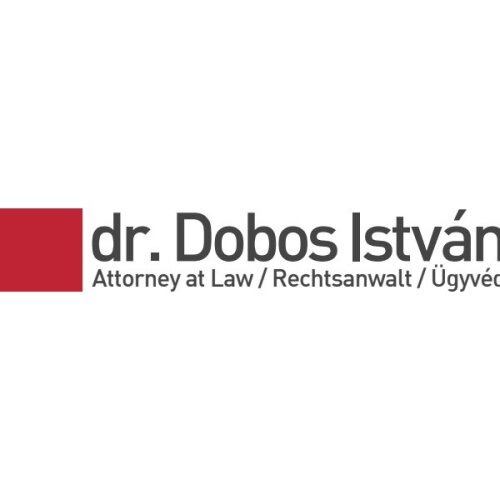Best Funds & Asset Management Lawyers in Budapest
Share your needs with us, get contacted by law firms.
Free. Takes 2 min.
List of the best lawyers in Budapest, Hungary
About Funds & Asset Management Law in Budapest, Hungary
Funds and asset management law in Budapest, Hungary regulates the operations and management of investment funds, asset management companies, and the protection of investors. This field of law encompasses both collective investment schemes, such as mutual funds and hedge funds, as well as individual portfolio management. The regulatory environment is shaped by both Hungarian legislation and European Union directives, ensuring investor protection, market transparency, and the integrity of the financial markets. Budapest has established itself as a regional financial hub, making the city a key location for fund management activities in Central and Eastern Europe.
Why You May Need a Lawyer
Engaging a lawyer with expertise in funds and asset management in Budapest may be crucial in several situations, including:
- Setting up an investment fund or asset management company in Hungary
- Navigating the licensing and regulatory approval processes with local authorities
- Ensuring compliance with reporting, disclosure, and operational requirements under Hungarian and EU law
- Drafting or reviewing fund documentation, management agreements, and investment mandates
- Dealing with cross-border investment and tax issues
- Handling disputes involving fund management, investors, or regulatory bodies
- Advising on mergers, acquisitions, or restructuring of funds and asset management businesses
Local Laws Overview
The regulation of funds and asset management in Budapest is primarily governed by the Hungarian Capital Markets Act, along with rules issued by the National Bank of Hungary (Magyar Nemzeti Bank or MNB) which acts as the supervisory authority. Local laws are closely aligned with European Union directives, including the Alternative Investment Fund Managers Directive (AIFMD) and the Undertakings for Collective Investment in Transferable Securities Directive (UCITS). Key aspects of local laws include:
- Mandatory licensing for fund managers and asset management companies
- Requirements for fund capitalization, governance, and internal controls
- Obligations to provide detailed disclosures to investors regarding risks, strategy, and fees
- Stringent anti-money laundering (AML) and anti-terrorism financing regulations
- Ongoing reporting and audit requirements
- Specialized rules for different types of funds, such as real estate funds or private equity funds
- Cross-border fund marketing and passporting within the EU
Frequently Asked Questions
What types of funds are regulated in Hungary?
Hungarian regulation covers a wide range of funds, including mutual funds, private equity funds, hedge funds, real estate funds, and other collective investment schemes.
Who oversees funds and asset management activity in Budapest?
The National Bank of Hungary (Magyar Nemzeti Bank or MNB) is the main regulatory and supervisory authority for funds and asset managers in Budapest and throughout Hungary.
Is it possible to set up a foreign fund for marketing to Hungarian investors?
Yes, EU registered funds can be marketed to Hungarian investors in accordance with EU passporting rules, subject to notification and adherence to local regulations.
What are the licensing requirements for asset management companies?
Asset management companies must obtain a license from the MNB, meet minimum capital requirements, maintain qualified management, and have robust internal protocols and compliance mechanisms.
Are there special rules for private equity or real estate funds?
Yes, private equity and real estate funds must comply with distinct rules regarding allowed investments, leverage, disclosures, and investor eligibility, as set out in both Hungarian law and relevant EU regulations.
What investor protections exist under Hungarian law?
Laws require transparency in fees, clear disclosures of investment strategy and risks, segregation of fund assets, fair valuation of assets, and recourse to complaints mechanisms and dispute resolution.
How are funds taxed in Hungary?
Taxation depends on the fund structure and investor profile. Collective investment funds generally benefit from favorable tax treatment, but both fund and investor tax obligations should be reviewed with legal and tax advisors.
What are the reporting requirements for fund managers?
Fund managers must submit regular reports to the MNB covering financial data, risk analysis, and compliance with regulatory requirements.
What if there is a dispute between an investor and a fund manager?
Disputes can be addressed through internal complaints procedures, mediation services, or through litigation in Hungarian courts. The MNB may also intervene in cases of serious regulatory breaches.
Can non-EU managers register and operate funds in Hungary?
Non-EU managers face additional requirements, including appointing a local representative and meeting higher regulatory standards, but it is possible with the right legal guidance.
Additional Resources
For anyone seeking more information or support regarding funds and asset management in Budapest, valuable resources include:
- National Bank of Hungary (Magyar Nemzeti Bank or MNB) - the primary regulator for financial markets and funds
- Hungarian Investment Promotion Agency (HIPA) - provides support for international investments
- Budapest Stock Exchange (BÉT) - for information on funds listed or traded in Budapest
- Association of Hungarian Investment Fund and Asset Management Companies - offers industry-specific advice and publications
- Hungarian Ministry of Finance - for legislative updates and policy information
Next Steps
If you require legal assistance in the area of funds and asset management in Budapest, Hungary, consider the following steps:
- Document your current situation and the specific questions or challenges you face
- Contact a qualified Hungarian lawyer or law firm with a focus on funds and asset management
- Prepare relevant documents, business plans, and previous correspondence for your legal consultation
- Ask about the lawyer’s experience with similar cases and their approach to solving your issue
- Discuss timelines, costs, and communication methods in advance
- Follow up as needed and maintain clear records of all interactions and legal advice received
Taking these steps will help ensure you receive informed, timely, and effective legal support for your investments and asset management activities in Budapest.
Lawzana helps you find the best lawyers and law firms in Budapest through a curated and pre-screened list of qualified legal professionals. Our platform offers rankings and detailed profiles of attorneys and law firms, allowing you to compare based on practice areas, including Funds & Asset Management, experience, and client feedback.
Each profile includes a description of the firm's areas of practice, client reviews, team members and partners, year of establishment, spoken languages, office locations, contact information, social media presence, and any published articles or resources. Most firms on our platform speak English and are experienced in both local and international legal matters.
Get a quote from top-rated law firms in Budapest, Hungary — quickly, securely, and without unnecessary hassle.
Disclaimer:
The information provided on this page is for general informational purposes only and does not constitute legal advice. While we strive to ensure the accuracy and relevance of the content, legal information may change over time, and interpretations of the law can vary. You should always consult with a qualified legal professional for advice specific to your situation.
We disclaim all liability for actions taken or not taken based on the content of this page. If you believe any information is incorrect or outdated, please contact us, and we will review and update it where appropriate.

















